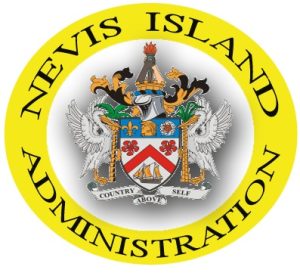Businesses in St. Kitts and Nevis Urged to Meet Food Labeling Compliance Deadline
Paragraph 1: The Impending Deadline for Food Labeling Compliance in St. Kitts and Nevis
The St. Kitts and Nevis Bureau of Standards (SKNBS) has issued a mandate requiring all businesses operating within the Federation to comply with national food labeling regulations by December 31, 2025. This directive encompasses a broad spectrum of businesses, from established enterprises to informal roadside vendors, and applies to all goods sold within the country, regardless of their origin – locally produced, imported, or informally distributed. The overarching goal of these regulations is to enhance consumer protection by ensuring transparency, safety, and accountability in the food products available to the public.
Paragraph 2: Scope and Rationale of the Labeling Regulations
The SKNBS emphasizes that no business is exempt from these labeling requirements. The regulations aim to establish a standardized system of information disclosure, empowering consumers to make informed decisions about the food they purchase and consume. By mandating clear labeling, the regulations seek to provide consumers with essential information about product ingredients, expiration dates, and contact details of the producer or distributor. This information not only promotes food safety but also facilitates traceability in case of product defects or safety concerns. The overarching objective is to ensure that consumers have access to safe and accurately represented food products.
Paragraph 3: Specific Requirements for Diverse Food Vendors
The labeling mandate extends to various categories of food vendors operating within St. Kitts and Nevis. Roadside vendors offering prepackaged food, snacks, and beverages are required to affix appropriate labels containing the necessary consumer information. Similarly, caterers providing prepackaged meals must label all their food and beverage offerings with the required details. Manufacturers of locally produced food items such as baked goods, drinks, jams, and jellies are also obligated to adhere to the national labeling standards. This comprehensive approach ensures consistent labeling practices across the food sector, regardless of the scale or formality of the business.
Paragraph 4: Consequences of Non-Compliance
The SKNBS has outlined potential penalties for businesses that fail to meet the December 31, 2025, deadline for labeling compliance. These penalties may include financial fines, seizure of non-compliant products, and even suspension of sales operations. The Bureau emphasizes the seriousness of these regulations and the importance of timely compliance. These enforcement measures aim to deter non-compliance and encourage businesses to prioritize consumer safety and transparency.
Paragraph 5: Support and Resources for Businesses
Recognizing that some businesses may require assistance in understanding and implementing the labeling regulations, the SKNBS has made resources available to support them through the transition. Businesses seeking further information or clarification on the labeling requirements are encouraged to contact the Bureau directly. This proactive approach seeks to facilitate smooth compliance and prevent any undue hardship for businesses, particularly smaller vendors who may have limited resources or experience with formal labeling practices.
Paragraph 6: The Long-Term Impact of Standardized Food Labeling
The implementation of these comprehensive food labeling regulations is expected to significantly enhance consumer protection and foster a more transparent and accountable food industry in St. Kitts and Nevis. By providing consumers with clear and accurate information about the food they consume, the regulations empower them to make informed choices that safeguard their health and well-being. Furthermore, the standardized labeling practices will contribute to greater product traceability, facilitating swift action in case of product recalls or safety incidents. In the long run, these regulations are anticipated to elevate food safety standards and build consumer trust in the food supply chain within the Federation.
Share this content:









Post Comment